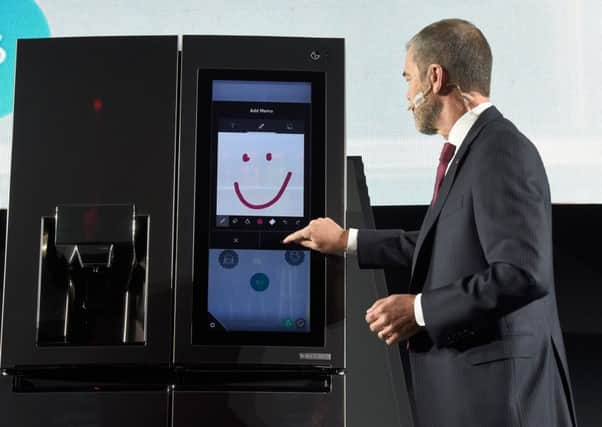James Walker: Outsmart the internet gizmo eavesdroppers


Technology is great – imagine a world without online shopping or GPS, because it wasn’t that long ago when these things were in their infancy. But lots of people tell me they’re worried about the pace of change and how to own their own data and avoid high-tech eavesdropping. Here are a few tips to lay those fears to rest.
◆ Turn off the mic. Most phones are sold with the microphone enabled, but you can turn it off if you’re worried about who’s listening in. All the info will be in the settings. It’s not always obvious where, but persevere. If in doubt, a search online will give you all the info you need in seconds.
Advertisement
Hide AdAdvertisement
Hide Ad◆ Question the big tech companies. Why does Google need to know where you are when you’ve searched for something on your phone? What does Apple want with those reports it keeps nagging you to send? Want to do a Facebook quiz? We’re so used to using the big tech companies that we often don’t question what they’re up to. Be suspicious, don’t click yes on requests for information and lock down your privacy and advertising settings.
◆ Children’s toys. There’s a bumper batch of toys that form part of the “internet of things” – an increasingly popular phrase covering items that connect to the internet. These can seem like great fun or an entertaining novelty. But bear in mind that opening the door to the internet means a risk – however small – of people exploiting the link. So before you connect up, read the instructions, check with parents’ websites online and don’t leave your child unattended with internet connected toys unless you’re sure they’re secure.
◆ Keep on top of your passwords. If you’re using fingerprint ID or “keychains” to remember your passwords for you, don’t get complacent. Recent hacks of Ticketmaster, British Airways, Facebook and many other companies have resulted in fraud on people’s accounts. I’ve seen countless examples of fraud where just one successful hack has given an email, password and card information. The fraudsters have then tried that combination with every big firm they can think of. Beat them at their own game by having separate passwords for banking and credit, shopping, social media and other interests. It’s a drag, but it will save you a fortune.
◆ Watch your home wifi. Make sure it is secured so no-one else can see it or use it. You might have thought it was cute to put “Ted and Suz” years ago when you set it up, but lock it down now. Change the default password too. Remember when you find a wifi spot for that “on the go” working or chatting vibe that most external wifi networks are not secured. So think twice before logging on to one and don’t stay logged in.
◆ Create a guest network. Worried about your fridge freaking out? What if the toaster has a tantrum? You can set up a guest network for all your connected devices, so if they do get hacked, they aren’t linked to the main network. There are loads of online tips to help you do this for free.
And if you think your data has been misused, Resolver can help.